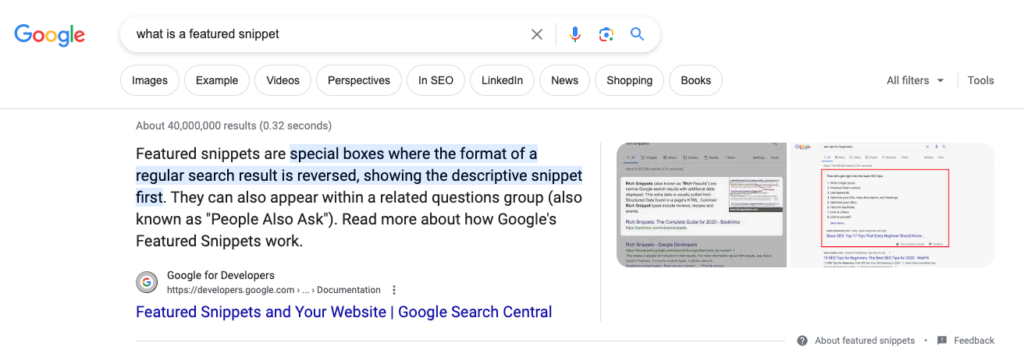5 Fresh Ways to Improve SEO Rankings in 2024

You probably know improving SEO rankings is key to raising the visibility of your brand at all points of the buyer’s journey — particularly at the consideration stage, during which your customers are actively seeking solutions to a defined problem.
And because 86 percent of consumers say they turn to the search engines for information — the majority of those consumers searching with Google — much of your SEO strategy should center on pleasing Google’s ever-changing search algorithm.
Since Google is constantly updating its algorithms to determine which factors indicate high-quality content, it’s important to stay tapped into new ways to improve SEO rankings. This way, you ensure your brand will remain at the top of your target audience’s SERPs (search engine rankings pages).
In the past few years, Google has made updates to deliver users the most helpful, high-quality results possible. If you haven’t revisited your SEO strategy in a while and are looking for ways to ramp up your presence in 2024, try these tips to improve SEO rankings for your website.
Consider Google’s Top 8 SEO Ranking Factors
Before you start your content audit, take the time to review the top factors Google takes into account when evaluating where to rank a webpage in its search results. These factors are:
- Content quality: This is the most important factor to influence Google search rankings. Google will always prioritize high-quality, informative, relevant content.
- Backlinks: When other websites link back to your website. The more high-quality backlinks your website has, the better for SEO.
- Technical SEO: The technical aspects of your site, like speed, mobile-friendliness and “crawlability” (how easy it is for Google to index your site).
- Keyword optimization: The practice of using relevant keywords throughout your site, which makes it easier for search engines to know what your website is about.
- User experience (UX): How easy it and enjoyable it is for users to navigate your website. Google prefers web pages with excellent UX.
- Schema markup: Structured data you can implement on your site to make It easier for Google to digest your content.
- Social signals: The likes as shares your web pages receive on social media. Make your content more shareable on social media by adding linkable icons that encourage your readers to post your content on their social feeds.
- Brand signals: The overall reputation of your brand online. The more respected and well-known your brand is on the web, the better for your SEO rankings.
Improve SEO by Optimizing Existing Content
Before you dive into creating new content, take the time to audit and optimize your existing content. This process will allow you to remove irrelevant content that can be detrimental to SEO, maximize the potential of your existing content and avoid redundancies that can confuse the algorithm and site visitors.
Start by evaluating your published content and identify any pieces that haven’t been updated in more than a year. Review the pages to see whether any of the information presented is outdated and could use a refresh. You can also look for high-potential pages that are already getting some traction but could benefit from an even bigger rankings boost with further optimization.
Structure Content for Featured Snippets
Pulled from high-ranking web pages, featured snippets are essentially instant results that appear prominently at the top of a Google search results page in response to a user query. They make it easier for users to find the information they’re looking for directly on the results page and can drive traffic to the pages from which the info has been pulled.

To increase your content’s chances of appearing in a featured snippet:
- Target question-based queries, which often contain a featured snippet.
- Organize content with the appropriate HTML tags.
- Start your content with the most important information at the top before going into detail.
Consider Mobile Users
Starting in September 2020, Google began using mobile-first indexing, which means its algorithms prioritize indexing the mobile version of a website’s content over desktop. If your website isn’t optimized for an ideal mobile experience, it won’t perform as well in Google search rankings.
Use Google Search Console to identify issues with your mobile experience, and follow Google’s best practices for mobile-first indexing as you optimize your web experience for mobile users.
Take Advantage of Core Web Vitals
Speaking of Google Search Console, Google recently introduced Core Web Vitals to the platform to measure the quality of a website and help provide a better user experience. The Core Web Vitals guidelines measure the speed, interactivity and visual stability of a webpage. Improving these three metrics can help your website rank higher and improve your site’s UX.
You can find your site’s Core Web Vitals data under “enhancements” in your Google Search Console.
Use AI in the Right Ways
Although generative AI platforms can be powerful tools for content creation, ideation and optimization, it’s important to know the right ways to use these tools so they don’t hamper your SEO efforts. Google can and will detect AI-generated content as it crawls your web pages since AI is limited and has some ”tells” that alert the algorithm when something was written using the technology.
Because AI still can’t replicate the content produced by skilled human writers, it is often lower in quality and therefore can be penalized by Google. Simply using a generative AI platform to spit out a piece of content and publishing it on your website may be expedient, but it won’t be exceptional. Instead, AI will likely give you a low-quality, regurgitated piece that won’t break through the internet noise and be rewarded by Google.
However, AI tools can actually be effective in increasing the quality of your content when used correctly. Play around with AI content platforms like ChatGPT, Midjourney or Jasper for brainstorming, writing outlines and briefs, identifying commonly asked questions and most-searched keywords, conducting research, planning editorial calendars and optimizing existing content.
Borrowing from the old “if a tree falls in the forest” metaphor, don’t let all the effort and time you put into your content be buried under pages of search results. Use these tips to make the most of your existing content and improve the SEO of your new content in 2024.
Still unsure of how to proceed with improving your SEO rankings? Contact us – we can help you.


